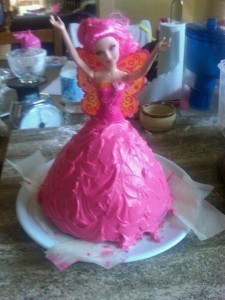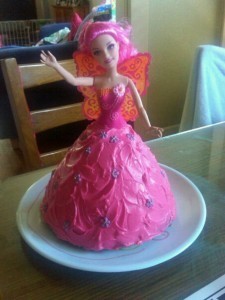P.D. Martin's Blog, page 7
March 2, 2012
Once more with feeling
In my post on Australia's National Year of Reading, I spoke about my early love of reading and how I read to be transported into other worlds — be they realistic or fantastical worlds.
 Most crime fiction books take us into the fictional world of a cop, FBI agent, body guard, profiler, etc — but they're based in realism. The crimes could really happen (although as Murderati's Gar mentioned in his post yesterday, sometimes real events sound too fictional to include in a novel!).
Most crime fiction books take us into the fictional world of a cop, FBI agent, body guard, profiler, etc — but they're based in realism. The crimes could really happen (although as Murderati's Gar mentioned in his post yesterday, sometimes real events sound too fictional to include in a novel!).
When I was writing my Sophie Anderson series, there were different elements at play, different motivations in terms of my aim for the reader. Some of the books are classic WHOdunits — my aim was to keep the reader guessing about who the perpetrator was. They are also largely WHYdunits. Given my leading lady is a profiler, the books include forensic psychology that focuses on why the perpetrator committed the crime and/or why they exhibited certain behaviours during the crime. My Sophie books can also be described as forensic-based police/FBI procedurals, so the scientific evidence is also a key element — HOWdunit.
In my National Year of Reading post, I said that reading is also about emotion, about how a book makes you feel. And while this can be an important element in some crime fiction stories, it's not a key factor in the Sophie series. Sure, I want people to connect with Sophie and the story — to be worried about the characters if they're in danger, to feel losses, to feel the victim's pain or the victim's family's pain, etc. But it's not the primary driver in these books. Like I said, like many crime fiction books they're who/why/how dunits.
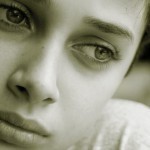 However, this is not the case in the book I've just completed. Tentatively titled Crossroads and Deadends, it's the mainstream drama/fiction book that I've spoken about on Murderati briefly a couple of times. And while I hope readers will feel transported into the character's world, my primary aim is to get an emotional response from my reader. I want them to feel the characters' heartaches and triumphs. I want them to worry about how the characters are going to cope.
However, this is not the case in the book I've just completed. Tentatively titled Crossroads and Deadends, it's the mainstream drama/fiction book that I've spoken about on Murderati briefly a couple of times. And while I hope readers will feel transported into the character's world, my primary aim is to get an emotional response from my reader. I want them to feel the characters' heartaches and triumphs. I want them to worry about how the characters are going to cope.
It feels very different to be writing predominantly for an emotive response, rather than piecing together evidence and suspects. I'm not analysing a crime, and neither are my main characters. Rather, my three main characters are trying to keep their lives together, despite destructive internal and external forces.
So, what is success from my perspective as the author? For the Sophie books, I felt successful when readers reported not knowing whodunit, staying up until 3am to finish a book (and generally not being able to put the books down), being scared to read late at night if they were by themselves, and telling me how much they loved Sophie. I've even had emails from my younger readers who read my books and were inspired to study forensics or criminal psychology at college, because they want to be like Sophie. Success.
So, what will make me feel like I've done my job well for this new book? Yes, I want it to be a page-turner even though it's not in the classic page-turning genres of crime, thrillers and action adventures. But mostly, I want readers to identify with my characters and be inspired by their stories. And, quite simply, I want them to cry at least once. Like I said, this book is a completely different style of book and so it's not surprising that what I consider to be success in terms of my readers' reactions will be different.
Oh yeah, and I guess success is also a best seller…but what writer doesn't want that?
February 13, 2012
National Year of Reading
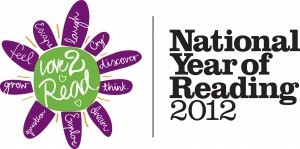 On Tuesday 14 February I launched the National Year of Reading at Kew Library. As the City of Boroondara's ambassador for the National Year of Reading, this was my first official duty. Below, I've included some of the things that I spoke about in my speech.
On Tuesday 14 February I launched the National Year of Reading at Kew Library. As the City of Boroondara's ambassador for the National Year of Reading, this was my first official duty. Below, I've included some of the things that I spoke about in my speech.
First off, I was lucky because I always loved reading. I didn't need Harry Potter or fancy ebooks on iPads to engage me – I just needed a book. Sure, there were books I loved more than others, books that I read over and over again. Childhood greats like The Wishing Chair, The Lion the Witch and the Wardrobe and Famous Five and Nancy Drew come to mind. But pretty much any book would do me. I'd devour them, keen to move on to the next story, or the next book in a series.
So, what did I love about books and reading? Some people talk about the feel of a book, the feel of turning pages. But for me, although my childhood reading was solely hardcopy based, it was never about the feel of a book, it was about the words on the page, or more specifically about where the book would take me. You can pick up a book and be anywhere in the world, or not in this world at all. Whether it's reading about a cop in the US, a bodyguard in England or reading about the hobbits travelling to Middle Earth, books take you somewhere else, give you another experience. Sometimes that experience can be grounded in reality or what might be possible, like crime fiction, drama or even romance stories (although many would argue they're not based in any realism at all!). And at other times, the world you're transported to is fictional, fantastical. Whether it's travelling with Lucy, Edmund, Susan and Peter to Narnia or following the lives of Bella and Edward in Twilight, these books take you to another world, a world that is appealing, interesting or intriguing in some way.
Reading's also about emotion, about how a story makes you feel. Reading has the ability, the power to take you on emotional highs and lows. You can be inspired by triumph, moved or heartbroken by tragedy or drama, intrigued and challenged by a whodunit or you can simply get away from it all with an escapist read. These escapist reads could come in the form of classic fantasy novels, horror books, paranormal stories or even romance. And while some people like the more literary style of writing and others prefer a good vampire book, it's all reading. And it's all story telling. Sure, it's changed a lot over the years. Originally it was people telling stories around campfires or 'drawing' stories. Then, as we evolved, stories became about the written word rather than the spoken word. They were about reading, not listening. And now, well in some ways we've come full circle with audio books that allow people to listen to stories, but they've also evolved to another level with ebooks. Our kids may read online, and via ereaders or i-Somethings, but they will still read. In fact, I think ebooks give these technology-savvy generations the ability to combine reading with gadgets and hopefully that will lead to an increase in the love of reading, and most importantly of literacy.
Reading is also ultimately why I became a writer – I think why anyone becomes a writer. Authors love hearing and reading stories, and most importantly we love telling our own stories.
However, I do have a confession to make. My reading is currently in a massive trough, which actually started when I got published. Like many authors, I found myself juggling tight deadlines and reading non-fiction research books instead of reading for pleasure. Plus I became a mother soon after I became published, which meant juggling the dual acts of motherhood and writing; and I'm also one of those authors who prefers not to read while writing. These things add up to not much reading.
However, I am inspired to read more this year. Inspired by the National Year of Reading, and by my role as an ambassador!
February 1, 2012
Golf…what the?
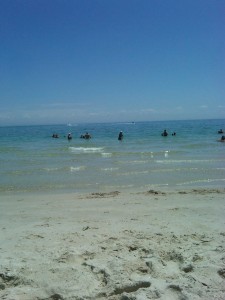 Okay, I'm still in holiday mode here (this is the view from my towel most mornings, although this picture does NOT do it justice!). In my last blog I talked about what I've been up to on my extended holiday break and today I'm going to continue with the holiday theme. We're still down in the Mornington Peninsula (until Saturday), and then on Monday my daughter starts school (scary!). Anyway…holidays…
Okay, I'm still in holiday mode here (this is the view from my towel most mornings, although this picture does NOT do it justice!). In my last blog I talked about what I've been up to on my extended holiday break and today I'm going to continue with the holiday theme. We're still down in the Mornington Peninsula (until Saturday), and then on Monday my daughter starts school (scary!). Anyway…holidays…
My mum is an avid golfer. She's now retired and plays golf two to three times a week. She loves it. So, when she came down to the coast for a few days it was natural for her to persuade us all to go for nine holes of golf. I did try to suggest I could stay at home and write, but the look (you know the one that only a mother can give you) told me that it was NOT a good idea for me to bail on the golf. So off I went.
I've played golf a few times and keep thinking I'll "get it"…but it hasn't happened yet. After the first hole I was completely perplexed. What do people see in this game?? Why do they play it? Now the cynics reading this might think it had something to do with the fact that on the first hole (a par 4) it took me around 12 shots to get the stupid ball into the stupid hole. It may have even been 14 shots…let's face it, by around six you lose count. My mum also tells me you have to count the shots when you completely miss the ball (air golf) but I think that's a bit rough for a beginner.
The second hole wasn't much better, but by the third I was down to about 8 or so shots (not counting the air-golf shots). Then one hole, I think it was the fifth hole, I took four shots for a par 3 and it did feel kind of good. But let's face it, it was a complete fluke.
In the next hole there was a pond between me and the fairway. My daughter (who's only 5) was in hysterics: "No, Mummy. It will go in the water. No!" She was also quite worried about the ducks in the lake. But I thought I'd give it a go (maybe artificially buoyed by my four-shot hole). And what were the chances my ball would actually hit some poor innocent duck? Nil, surely. First ball went straight into the lake (of course), as did the second one. Thankfully, the ducks remained intact. Grace was most concerned about losing another ball (and I don't think my mum wanted to give me another one either) so I walked around and dropped the ball on the fairway. And it still took me like a million shots to get it in the hole.
I think it was around this point that I said to my mum: "How many more holes have we got to go?" I guess it's a variation on "Are we there yet?"
Interestingly, my daughter enjoys golf! My mum sometimes takes her to the driving range where they have 50 balls and then do some putting. On our 9 holes, Grace teed off about six times, often striking the ball further than me. Then we'd pick up her ball and give her a shot at the other end – putting. She seems pretty good for a 5yro, but then what do I know about golf?
As I walked around (for nearly three hours) I couldn't help but think about what a complete waste of time golf was – and how I'd MUCH rather be at home writing. Time is very tight for me (the juggling act of motherhood, freelance corporate work and fiction writing) and I felt like I'd completely wasted three hours of my precious time. But I'm trying to be more 'the glass if half full' so I tried to think about the up-side.
I did walk around eight kilometers so at least I got a bit of exercise.
Cape Schanck is a stunning golf course, and on many holes you catch glimpses of the ocean in the background.
I was with my daughter, mum and mother-in-law. Family time!
The only other thing that worried me on the course was that this particular course has lots of houses on it. I kept saying to my mum, "I'd be worried a ball was going to come sailing through my window." She assured me they were designed so it rarely/never happened. But they hadn't seen me play golf! Or maybe the designers had taken into account people like me because I miraculously avoided both ducks and houses. Yay, me!
January 18, 2012
Summer Downunder
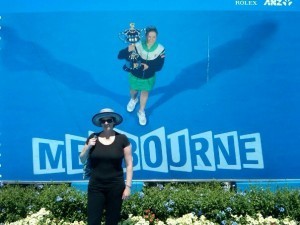 I know my readers are scattered around the globe (you're such an eclectic bunch) but many of you are in the Northern Hemisphere and in the throes of winter. So, I thought you might like to hear about my summer holidays!
I know my readers are scattered around the globe (you're such an eclectic bunch) but many of you are in the Northern Hemisphere and in the throes of winter. So, I thought you might like to hear about my summer holidays!
Currently my daughter is on holidays, about to transition from pre-school to her first school year, which starts Monday 6 February (yes, our school year coincides more with the calendar). After Christmas, we headed down to the beach, specifically Mornington Peninsula. It's a lovely spot down there, and my family has a small house in a suburban area, but it's only a ten-minute walk to the beach. There's a great beach-side track for walking/jogging/cycling, the beach (of course) and we spend lots of time on the deck having BBQs and drinking good wine. Aussie wine, of course!
Our days have been varied, partly because we've been experiencing some classic crazy Melbourne weather (Melbourne is known for its unpredictable weather, and it's often said you can experience all four seasons in one day – and you can). Anyway, so the first week down at the beach was damn hot (30-38 Celsius or 86 to 103 for those of you who prefer Fahrenheit). Then the next week temperatures plummeted to 16-18 Celsius (60-64 Fahrenheit) and we had rain. Now we've had another hot few days so we've been lying on top of the bed clothes with a cold facewasher on hand. I know it's weird…for a country that experiences such extreme hot weather many of our houses don't have air conditioning. In fact, my family's beach house doesn't have air-con, neither does our two-bedroom unit in Melbourne (which was built in 1972). So some nights it gets hot, hot, hot! But who knows, tomorrow it might plummet again.
 Another key part of our Aussie summer each year is the Australian Open. Today we headed in for a 'day pass', another fun day in the sun, watching the tennis heavyweights hit it out. Hopefully we applied enough sunscreen and got enough water into us to cope! So far so good. The picture on the left is a partial view of the Melbourne skyline from the Margaret Court Arena.
Another key part of our Aussie summer each year is the Australian Open. Today we headed in for a 'day pass', another fun day in the sun, watching the tennis heavyweights hit it out. Hopefully we applied enough sunscreen and got enough water into us to cope! So far so good. The picture on the left is a partial view of the Melbourne skyline from the Margaret Court Arena.
This summer has also been made extra special with two overseas visitors. Firstly, my best friend (who I've known since I was 4yro). She's actually an Aussie but moved to Rhode Island nearly six years ago with her American husband. It's been great to have her in town, visiting some of our old haunts and finding some new (more mature) haunts. We've also got my husband's mother in town from Ireland. She's here for three weeks, spurred on by wanting to be around for Grace's first day of school.
We'll be hitting a few more tourist destinations with her, but mostly relaxing down at the beach house.
Writing?
Writing you say? What's that? No, I have been doing a little bit of writing/editing here and there, but really only one day a week plus a couple of nights. My output is down, but I managed to finish the first draft of my new 'mainstream fiction' book just before Christmas and I have managed my first editorial pass. I expect my output will suddenly and significantly increase on 6 February.
January 4, 2012
Health hazards of being a writer
Okay, so maybe you're thinking this sounds like a bizarre blog title. And I guess it is something we don't talk about much. So here it is, the health hazards of being a writer. Brought to you by PD Martin.
First off, I should talk about all the wonderful things about being a writer. Things like: creative freedom; working from home; working from cafes; working in your pyjamas; creating magical or scary or whatever types of worlds; creating in general; bringing our work to the masses (hopefully); yada, yada, yada. Okay, time to move on to the moaning part of the blog and the 'beware' section.
 RSI
RSI
It's true. Being a writer involves long chunks of time at a desk, typing. And we all know that can lead to repetitive strain injury. Thankfully, so far I've been spared from this particular hazard. However, I do have…
Carpal tunnel syndrome
If you don't know what that is, it's a nerve thing (yes, very technical) and it's generally caused by typing. The main thing for me is I wake up in the middle of the night with painful pins and needles in my hands and also get that if I try to grip something for a while (e.g. a car steering wheel). Annoying more than anything else.
Eye sight problems
Another one I can tick, I'm afraid. I used to have perfect vision. Then in my 20s I was doing lots of hard-copy editing (okay, not exactly writing, but it's still part of the same business). After a few months I realised I couldn't read signs…everything in the distance was a little blurry. Yup, I'm now long-sighted.
 Alcoholism
Alcoholism
Okay, I'm happy to say I don't suffer from this one! At least not yet. Although, that wine does look yummy.
But it's true, many writers like to have a drink or two before they write. Or maybe it's our creative brains. Who knows, but many authors do like to knock a few back. You?
Insomnia
I do get this one from time to time. Like a few weeks ago when I woke up in the middle of the night and starting thinking of opening lines for a book. Plot points, character arcs…two hours later I was still awake.
Back and neck problems
Oh dear…I've got this one too. Mind you, my husband does accuse me of being a hypochondriac (better not show him this list). Mostly it's my right shoulder running up into the neck. Ouch.
Weight gain
Can I blame this on hours at my desk? Maybe. Although if I'm honest my metabolism seemed to know the minute I hit 40 (less than 2 years ago) and stood at the front of the room waving its finger at me with an 'Uh huh…no way you going to eat that and not put on a few pounds.' Blast it.
 Stress
Stress
Okay, everyone's stressed. And authors are no different. What do we stress about? Usually deadlines and lack of any cold hard cash. It's a tough life, you know?
Sometimes we stress about writer's block (thankfully I've never had that problem – touch wood) or about our careers shrivelling up like over-dried dried prunes (okay, I do stress about that).
Well, I think I'm done. Phew. Although no doubt I've missed an ailment or two.
December 22, 2011
The life of a hitman
 A while ago I started a research series on Murderati and somehow it fell by the wayside. Sorry! But I'm back on the research front with today's blog, this time focusing on some research I did into professional hitmen.
A while ago I started a research series on Murderati and somehow it fell by the wayside. Sorry! But I'm back on the research front with today's blog, this time focusing on some research I did into professional hitmen.
Note: In nearly all the known cases of contract killers the gender of the killer is male. It doesn't mean a woman can't be a hitperson, it's just much, much less likely.
An article I found in the Journal of Forensic Sciences classifies three types of hitmen: amateur, semi-professional and professional. The amateur ones are probably best characterised as the career criminal or drug addict who takes a few hundred bucks to knock off someone's wife or husband. Planning levels are low and often these amateurs stuff up the job and/or get caught.
But then we have the upper, upper echelon. I uncovered one research study on this type of contract killer, but the number of subjects was extremely low (five killers, all male and covering a large age range). One assumes that the people who practice in the upper echelons of contract killing simply don't get caught. In the US in 2008, there were 200 murders that were either known or believed to be carried out for money. Of those, 82 were solved and fall into the amateur or semi-professional categories, leaving 118 unsolved. That's a lot of unsolved contract kills. And how many killers were there? It's possible there were a handful of busy killers, or fifty or so averaging two jobs a year. Who knows?
The professional hitman (which my research was focused on) is highly organised and plans the kill methodically. He (or very rarely she) is often employed by organised crime and the target is usually a criminal and often someone within organised crime. There is little to no physical evidence left at the scene.
In terms of this type of contract killer's personality, they see what they do as a job-strictly business. There's no psychological or emotional need to kill; in their minds, it's simply a way of living. However, it's been found that some contract killers see themselves as doing the 'work of God', stepping in where the justice system fails. Either way, these individuals are capable of complete compartmentalisation and so it's possible that they're married with children and successfully living a double life.
In the small sample study of five contract killers, they also tested IQ. They ranged from 95 to 115, with the average being 108. However, most of them functioned above their overall intelligence and this was because they had highly developed analytical and organisational skills, plus extremely well-developed social skills.
Most of them are highly methodical with an overdeveloped sense of discipline and many have served time in the military. They do 'stalk' their victims but it's purely for functional reasons, to get to know their routines and to find the best place to kill them. The contract killer feels no bonds or ties to the victims, and as a professional killer, it's also unlikely he'll feel any remorse.
How to be a hitman…really?
 One of the weirdest (and funniest) things I ran across during my research was a book calledHit Man: A Technical Manual for Independent Contractors. The book was initially published in 1983 by Paladin Press. However, in 1993 a triple homicide was committed by a man who said he'd used the book. The victims' family sued Paladin Press and in 1999 the case was settled and the book was officially pulled off the market. Of course, it popped up online the next day!
One of the weirdest (and funniest) things I ran across during my research was a book calledHit Man: A Technical Manual for Independent Contractors. The book was initially published in 1983 by Paladin Press. However, in 1993 a triple homicide was committed by a man who said he'd used the book. The victims' family sued Paladin Press and in 1999 the case was settled and the book was officially pulled off the market. Of course, it popped up online the next day!
The book details things like: mental and physical preparations; equipment needed; how to make a disposable silencer; different killing methods; surveillance; planning the kill; finding jobs; how much to charge; how to get it right; controlling the situation; and enjoying the fruits of the life of a contract killer. Bizarre, right?
I actually often read out a section at my talks about women. I won't repeat it here for copyright reasons but I can give you the general gist of it – it my own words. The section reads as a warning against women. I guess you'd call it a back-handed compliment for women, because it says we can be great contract killers but the reasons given are our deceitful natures and because we're so vicious! It then goes on to say that luckily women are taken off the street because of our nesting instinct…and then we're busy with babies, laundry and housework. Hard to believe the book was written in 1983 and not 1953 with comments like that.
Merry Christmas
Lastly, I wanted to wish everyone a Merry Christmas. We'll be celebrating Christmas Day out the back, eating seafood and basking in the Aussie sun – the forecast is for 30C (86F). And have you heard the Aussie Jingle Bells? My 5yro was taught this at pre-school…although it's probably cuter when it's sung by 4-5yros.
December 21, 2011
Amazon as publishers
This was a blog I posted on Murderati for my turn at our "Wildcard Tuesday".
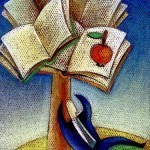 Amazon moved into the publishing realm (sort of) in 2009 with AmazonEncore, a program where Amazon selected self-published titles they felt deserved greater attention and marketed them as AmazonEncore editions. In 2010, the imprint moved into a more traditional role, publishing original manuscripts (some selected via the Amazon Breakthrough Novel award and some via agent submissions). Also in 2010 came Amazon Crossing, an imprint that publishes English-language versions of foreign language books.
Amazon moved into the publishing realm (sort of) in 2009 with AmazonEncore, a program where Amazon selected self-published titles they felt deserved greater attention and marketed them as AmazonEncore editions. In 2010, the imprint moved into a more traditional role, publishing original manuscripts (some selected via the Amazon Breakthrough Novel award and some via agent submissions). Also in 2010 came Amazon Crossing, an imprint that publishes English-language versions of foreign language books.
However it was in 2011 that Amazon really launched itself as a publishing 'house' (as distinct from its offering to authors who can self-publish on Kindle).
In 2011, three new imprints launched from Amazon's Seattle office:
Montlake Romance (romance imprint; launched in April)
Thomas & Mercer (mystery/thriller imprint; launched in May)
47North (science fiction, fantasy and horror imprint; launched in October)
Then in May this year, Amazon set up its New York-based imprint, appointing Laurence J Kirshbaum at its helm and focusing on non-fiction and some literary fiction. The imprint made its first acquisition in August, withTimothy Ferriss' self-help book The Four-Hour Chef (for publication in 2012).
Amazon's most recent foray into publishing came earlier this month, when the company moved into the children's publishing book market through its purchase of Marshall Cavendish Children's Books. The trade publishing list includes over 450 children's books and the deal was made via Larry Kirshbaum's publishing unit. One can only assume that acquisitions will follow.
Certainly there's no arguing that Amazon has been a powerhouse since it launched amazon.com in 1995. As a retail player, it's revolutionalised the book buying and selling business and of course Kindle has changed the way we read books — forever. And is it even necessary to mention what Kindle and ebooks have done for an author's ability to self-publish?
So, has Amazon brought its transformation skills into the more traditional publishing sphere? Will its move into traditional publishing be a Midas touch for authors or the kiss of death? I believe that Amazon still requires ebook exclusivity – so an author's book is only available online via Kindle. Will this change? As an author, I hope Amazon's new imprints bring a new opportunity — there's a new publisher in town, another publishing 'house' that agents can approach. At least, I hope that's how it will turn out. But often when it comes to things like this, I lack insight 
What do you think? And will other book retailers following Amazon's footsteps?
December 9, 2011
The allure of the short story
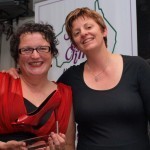 Today I'd like to welcome Aussie author Angela Savage to my blog.
Today I'd like to welcome Aussie author Angela Savage to my blog.
I've met Angela a couple of times on the mystery 'scene' and ran into her again at Sisters in Crime Australia's Scarlet Stiletto Awards – Angela won the top honour of the night and I was there as the official presenter. You may also recognise Angela from my 'photoshoot to kill for' blog.
Given Angela's first novel was written after an award-winning short story introducing her main protagonist, and that she's written extremely successfully in both the short and long form, I asked Angela to blog about the short story and the novel. What attracts her to both forms? Does she approach them with a similar mind-set?
I've entered the Sisters in Crime Australia Scarlet Stiletto Awards short story competition twice, once in 1998 and again in 2011.
The first time I was an unpublished writer with an abandoned manuscript burning a hole in my filing cabinet. Short story competitions provided me with focus, opportunities to practice my craft and try something new. The Scarlet Stilettos held the particular appeal of being exclusively for women writers, with stories required to have an active woman protagonist.
In what was my first foray into crime fiction, I submitted a story called 'The Mole on the Temple' about an Australian expatriate detective called Jayne who exposes a card scam in Bangkok.
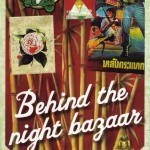 My story won third prize. More valuable than the prize money was the confidence this gave me to persevere with both the crime genre and the main character. Jayne went on to acquire the surname Keeney and became the hero of my first novel Behind the Night Bazaar published in 2006. The second book in the Jayne Keeney PI series The Half-Child followed in 2010 and I'm currently working on the third, working title The Dying Beach.
My story won third prize. More valuable than the prize money was the confidence this gave me to persevere with both the crime genre and the main character. Jayne went on to acquire the surname Keeney and became the hero of my first novel Behind the Night Bazaar published in 2006. The second book in the Jayne Keeney PI series The Half-Child followed in 2010 and I'm currently working on the third, working title The Dying Beach.
Funnily enough, Behind the Night Bazaar started life as a short story that just kept growing. I've since 'cannibalised'—to use Raymond Chandler's word—several of my early short stories for scenes or subplots in my novels.
I'm not the only author to have kick-started my writing career with a prize at the Scarlet Stilettos. So far 15 women, including category winners like me, have gone on to publish novels. But I'm the first established novelist in the 18-year history of the Scarlet Stiletto Awards to return to the scene and take home the coveted Scarlet Stiletto trophy.
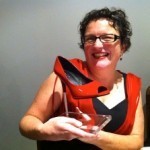 So what made me decide to enter the competition again after a 13-year break?
So what made me decide to enter the competition again after a 13-year break?
Part of the motivation stems from a crisis I had earlier this year about whether I could call myself an 'Australian writer', when everything I'd written was set in Thailand in the 1990s, albeit featuring Australian characters. I challenged myself to set a story closer to home and the result was my winning entry for the 2011 Scarlet Stilettos, 'The Teardrop Tattoos' set in contemporary Melbourne. The plot, involving a restricted breed dog, became inadvertently topical when a four-year-old-girl was tragically killed in an attack by a pit bull terrier only weeks after I submitted the story to the competition.
As in 1998, the short story form gave me an opportunity to try something new. But this time around I have no desire to develop the characters or plots into a full-length novel.
Pound for pound, I find short stories harder and more time consuming to write than novels. Short stories and novels have different centres of gravity. Both need to hook readers in at the start, but the narratives have different arcs. Short stories are less forgiving. There's no room for superfluous adjectives or adverbs.
With novels you can loiter a little, while the nuances of the story and characters play out. Short stories have to maintain the pace or they're dead in the water.
Secretly, like an actor who longs to direct, I'd really like to write songs—to tell a whole story in three or four verses and a haunting refrain.
I'll just have to keep practising.
Angela's first book, Behind the Night Bazaar, won the Victorian Premier's Literary Award as an unpublished manuscript in 2004 and was shortlisted for the Ned Kelly Award for Best First Book in 2007. Her second novel, The Half-Child was shortlisted for the Ned Kelly in 2011 for Best Fiction. The Half-Child is available in Kindle version on Amazon or in hard copy through Text Publishing.
December 8, 2011
The importance of cake
Yesterday was my daugther's 5th birthday. We have a tradition in our family of celebrating birthdays for many days…and her 5th is no exception. So we started off on Sunday with my family coming over to celebrate. Then on the actual day (yesterday) she had 'Cake in the Park' with her pre-school friends. And on Sunday she's having a fairy birthday party. Anyway, I decided to use yesterday as the practice run for my Fairy Princess Cake. I spent quite a bit of time researching this – recipes, cake tins (Dolly Varten) and decorating options.
I will post the recipe below, but first I wanted to show you the many stages of the cake decorating that went on early yesterday morning!
Stage 1: Banana cake baked and cooled (night before)
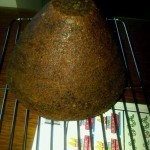
Stage 2: Stick fairy Barbie into the cake (and also line the plate). Note: I'm afraid some of Barbie's legs had to go. I know…cruelty to dolls is NOT a good sign! But it was off at the knees for this Fairy Barbie.
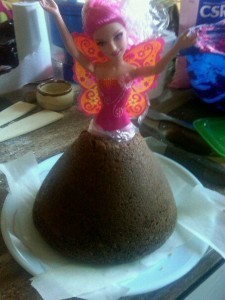
Stage 3: Pink cream cheese icing.
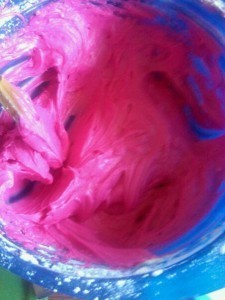
Stage 4: Fairy Barbie's dress is iced!
Stage 5: Decorations (flowers)
Stage 6: Take a step back and bask in the glory. Especially when your husband laughed – loudly – when you first told him of the task at hand and showed him photos you were aiming to replicate!
So, the recipe:
4 oz butter
1 cup sugar
1 egg
1 tsp baking soda
3 tbsp milk
2 mashed bananas
1 ½ cups flour
1 ½ tsp baking powder
Cream the butter and sugar. Add egg and beat well. Dissolve soda in warm milk and mix in. Add mashed bananas. Lastly, fold in the flour and baking powder. Bake (45 mins) in a moderate oven (180C).
I doubled the recipe and cooking time for the Dolly Varten tin.
This video was extremely helpful:
Too good to be true?
While I've never been one of those writers who paces for hours to come up with one sentence or spends six months planning out every detail of a book before I start writing, I've still always thought of writing as hard work. It is hard work.
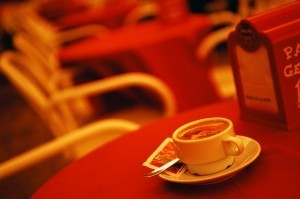 Sure, there's the fun stuff…writing in your pyjamas, the long commute from bedroom to study, tax-deductible trips to various destinations for research and/or promotion (although you have to be able to afford the flights in the first place), not to mention sitting in a café and writing. And sometimes cake does need to be involved! I don't think anyone can argue that the above perks of the job are cool…way cool. But it's still bum on chair, thinking, creating and writing. And while it's tempting to get up and procrastinate every time the flow stops, it's not something I do.
Sure, there's the fun stuff…writing in your pyjamas, the long commute from bedroom to study, tax-deductible trips to various destinations for research and/or promotion (although you have to be able to afford the flights in the first place), not to mention sitting in a café and writing. And sometimes cake does need to be involved! I don't think anyone can argue that the above perks of the job are cool…way cool. But it's still bum on chair, thinking, creating and writing. And while it's tempting to get up and procrastinate every time the flow stops, it's not something I do.
In a post some time ago, I mentioned that I was working on a new book that's not crime fiction. It's not even a thriller or remotely related to my past work. I'm still getting my head around what I'd call it, but I think 'mainstream fiction/drama' is pretty accurate. The book is about relationships and how people deal with different traumas. I'm also entering another new world, using multiple viewpoints. And some of my subject matter is tense and issues-based…controversial, I guess.
 I started writing this book at the beginning of the year, and then it was on hold for months as I took corporate gigs to pay the bills. I started on the project again in October and soon found myself zooming through it. My writing week is often very fragmented as I fit it in around being a full-time mother (to a pre-schooler) and freelance writing gigs. But I'd find I'd have an hour to write…and write 1,000 words. And every Saturday I have four hours to write while my daughter is in classes. The last two Saturdays, I've written 5,000 words during each of those four-hour blocks. Two productive sessions, to say the least.
I started writing this book at the beginning of the year, and then it was on hold for months as I took corporate gigs to pay the bills. I started on the project again in October and soon found myself zooming through it. My writing week is often very fragmented as I fit it in around being a full-time mother (to a pre-schooler) and freelance writing gigs. But I'd find I'd have an hour to write…and write 1,000 words. And every Saturday I have four hours to write while my daughter is in classes. The last two Saturdays, I've written 5,000 words during each of those four-hour blocks. Two productive sessions, to say the least.
So, a couple of weeks ago I found myself asking the inevitable question. Is this too good to be true? Can writing really be this 'easy'? Am I writing dribble that I won't be able to edit into shape? I'm a write first, edit later kind of girl, so that's fine. But will my bare bones be barer than usual? Or is it because the subject matter is close to my heart? One of the characters is experiencing something that I went through about eight years ago and I'm finding it easy to tap into that character and the others too for that matter.
I know my fellow Murderati, Gar, wrote a post two weeks ago with pretty much the polar opposite sentiment of this one, and I think that highlights the different working processes of writers. But then I'm still left with the question: Too good to be true?
This feeling is compounded by the fact that I came to this project after six months off my own writing altogether, then writing a thriller that I found incredibly hard-going. The writing didn't seem to come naturally to me and I wasn't sure if it was the idea/characters or the fact I'd had six months off fiction writing. This new project certainly provides a stark contrast to writing the thriller.
So now I'm torn between two polar opposites.
I'm writing what I'm "meant" to write. (Although this sounds a little cliché or dramatic…or something.) The flow and 'ease' is just an indication of that.
It's too good to be true.
Obviously the proof will be in the pudding. I'm now 70,000 words into the first draft, so the end is nigh and soon the major, major editing will start. Then I'll have a better idea of how bare the bare bones are.
In the meantime, I wanted to throw this out to the Rati. Does good writing HAVE to be a hard slog? And if it flows incredibly easy, is that too good to be true?

